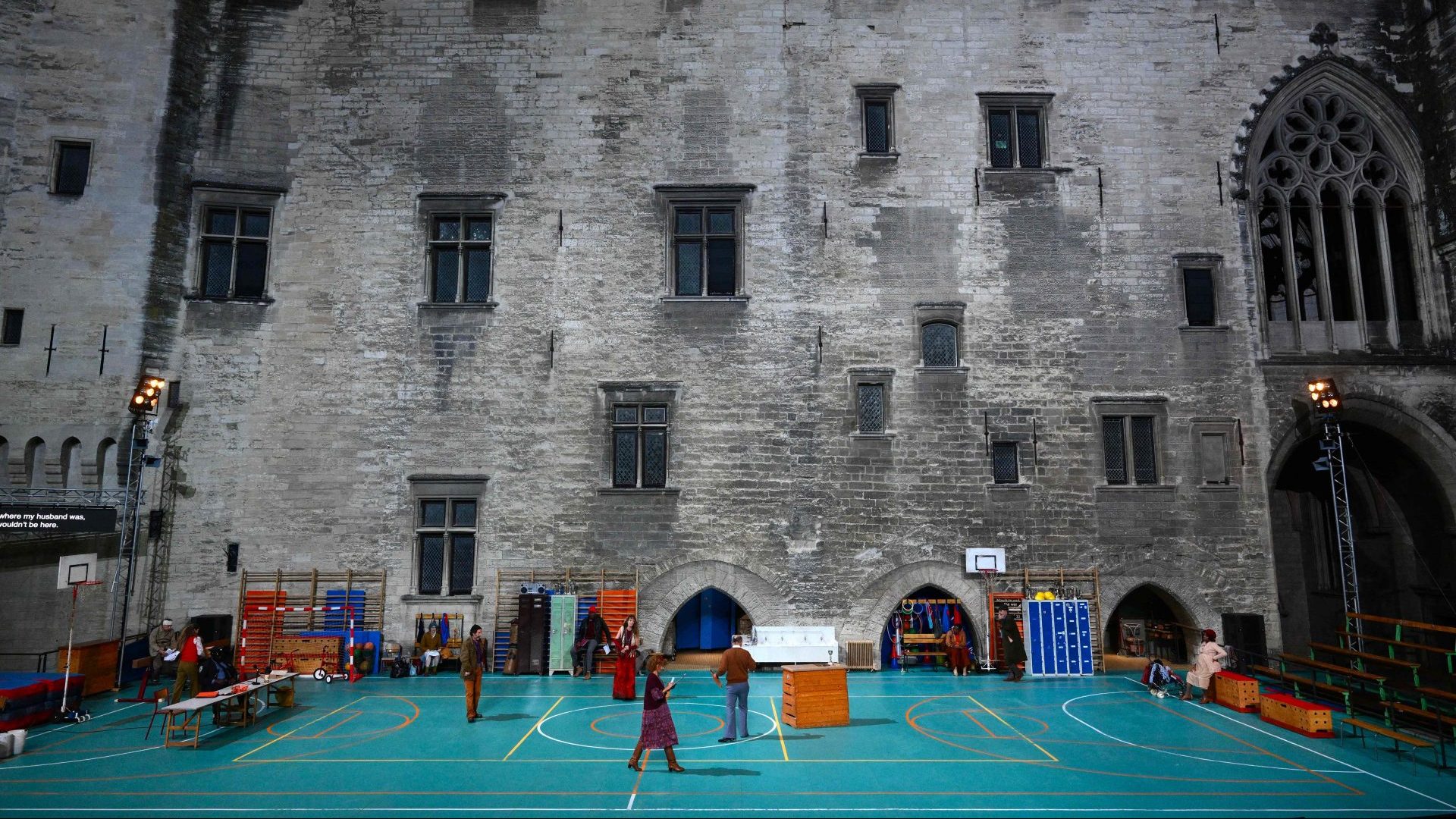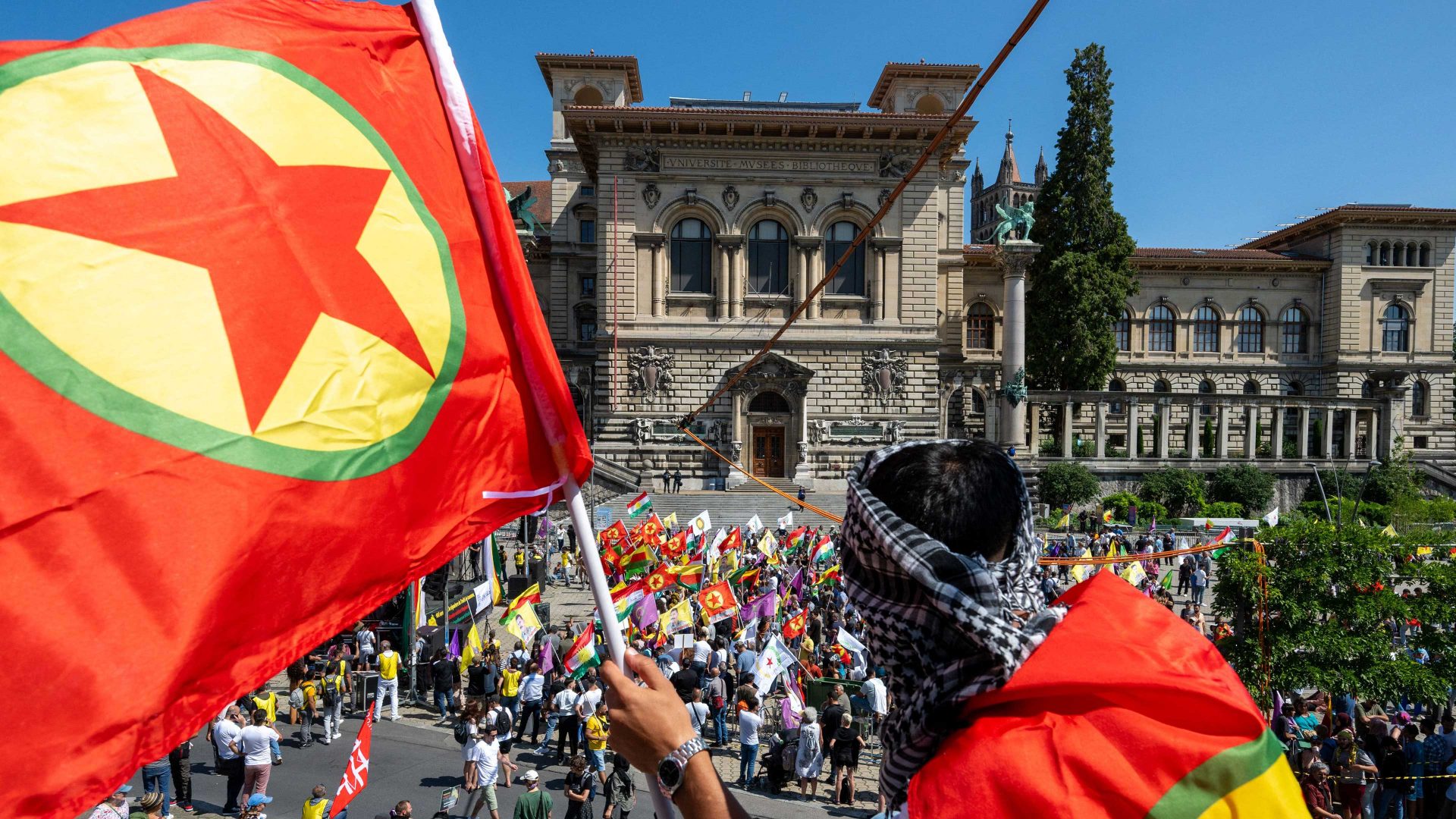The Avignon theatre festival is now in its 77th year. It is July. The heat is crushing and the cicadas chirp so loudly it sounds as though the trees are frying. The crowds murmur against the deafening insect orchestra.
On the streets there is song and music and dance everywhere, in as many different styles and genres as you can imagine, from opera to jazz. The new festival director, the Portuguese actor, writer and director Tiago Rodrigues, has said he will showcase a European language each season and – in defiance of Brexit – he kicks off with English.
In the open-air 14th-century Cloître des Célestins, one company is putting on An Oak Tree, the 2005 play by Tim Crouch, the British playwright. Evening performances here start at 10pm. To my left, a young journo watches everything with intense interest, and to my right an older woman sits with a huge leather handbag on her lap.
We look down towards a spotlit seat between two magnificent plane trees. “Where are their roots?” whispers my neighbour. She is impressed more by the trees than the play, which is interminable. The audience fidgets and fans itself; Rodrigues sits with disciplined stillness, and the young journo leans forward and stares. The woman on my right sighs, zipping and unzipping her handbag, as if she might find a better play hidden inside it.
It’s almost midnight by the finish and my hotel is way out of town on the edge of a vast car park behind a warehouse and a car wash. I had been worrying about how I would find it again, but then – a miracle. I found the bus stop where the correct bus was waiting, and got on board to find three women who were staying at the exact same hotel.
The bus rumbled into the deep darkness of the banlieue. The female driver chatted along with us (she usually drives trams, but prefers the camaraderie of the bus). It was getting very late and she offered to take us to the door. We veered off route, circling the suburban desert in search of the Première Classe Hotel. Soon, we were all completely lost; the driver had no idea where the hotel was. Two other passengers shouted directions; we thought we recognised a particular bend in the road, a roundabout, a litter bin. Première Classe Hotel refused to be found.
In the end, exhausted and defeated, the driver returned us to the bus stop and apologised. Gingerly, we set off by foot and it took another 40 minutes to reach the hotel.
As for the festival, my highlight was Welfare, staged in the huge Cour d’Honneur du Palais des Papes, another open-air venue of almost 2,000 seats. This epic production is drawn from Frederick Wiseman’s 1975 film documenting the absurd inefficiency of the American welfare system, creating a vicious cycle of dossier paperchase and desperation, where claimants are powerless, and the staff simply cogs in a machinery designed to block assistance. The adaptation for the stage by Julie Deliquet is as relevant today, and superbly performed.
I had my own experience of living in the cracks at the mercy of officialdom when the bus company that was due to take me back to Paris cancelled my overnight journey from Avignon. Stranded in another car park, peeing behind bushes, I slept on a bench until morning, then took an expensive TGV train instead. In Paris, the woman at the Eurostar ticket office booked me into business class, and within hours of bench surfing I was having a glass of Champagne for breakfast.




